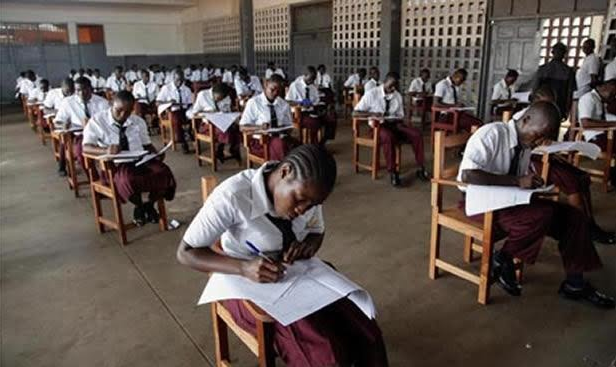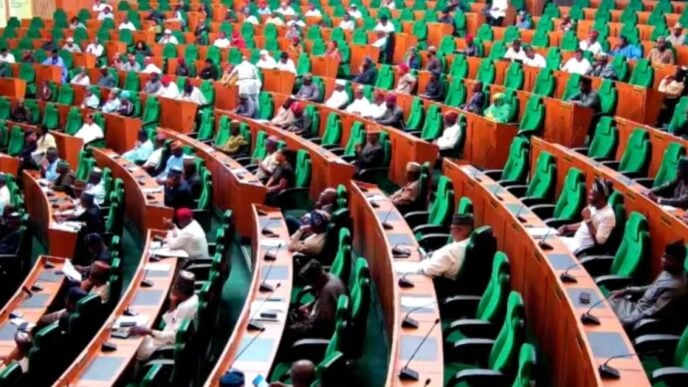BY PATRICK IWELUNMOR
One of the unfortunate consequences of social media is the abysmal performance of Nigerian students in the recently released WAEC results, which showed that less than 40 percent of candidates passed English Language. This grim reality has long been looming, waiting to unveil its ugly head, as our youngsters continue to frolic with their Android phones unchecked.
Subconsciously, the rules of grammar, punctuation, and, more broadly, the principles of Standard English have been crucified on the altars of TikTok, Facebook, Instagram, and WhatsApp.
These platforms discourage attention to detail because they are, by design, built for speed—fast-paced communication that promotes the unbridled use of slang, unconventional abbreviations, and all kinds of pidginised expressions. Coupled with the impatience and exuberance of a generation known as Gen Z, caution and adherence to grammatical rules are easily cast aside.
Advertisement
What then happens is that the informality and linguistic recklessness of social media become ingrained in the minds of students, who begin to replicate this in more serious contexts—such as the WAEC examination hall.
On TikTok, grammar is often sacrificed for rhythm. On Instagram, captions are frequently reduced to emojis, trendy phrases, and shorthand. On WhatsApp, daily conversations resemble cryptic code: “Hw r u?”, “Abeg no vex”, “BRB”, “lmao 😂”. In this virtual village square, a new mode of expression has emerged—witty, fast, and unapologetically informal.
Another contributing factor is the misguided belief that English is merely a colonial relic. This reductionist view, unfortunately, ignores the reality that English remains a global currency—one that opens doors. In Nigeria, over 90 percent of WAEC exams, including those in the sciences, are written in English. Until we develop our indigenous languages to a level of global competitiveness, we must continue to dispense knowledge through English. There is no alternative—at least, not yet.
Advertisement
As expected, the public reaction to the mass failure in English has been varied. Many point fingers at the deteriorating standard of education, poor teacher remuneration, and libraries starved of relevant books. All valid concerns. But they often overlook a bigger, more insidious culprit—social media. It continues to grow unchecked and, if left unaddressed, will undermine every other well-meaning effort by teachers, parents, and the government.
That said, it would be unfair to blame social media entirely. The real failure lies in our inability to strike a balance between the informal world of social media and the formal world of academic learning. Have we considered educational models that enable students to transition—fluidly and consciously—between these two linguistic realities?
Social media is not inherently harmful. In fact, it holds vast potential as a learning tool. However, without guidance, its disadvantages become more pronounced. The 2025 WAEC results are a painful testament to this imbalance, particularly in English Language.
WAEC is not TikTok, and its examiners are not influencers. They do not award marks for abbreviations, nor do they double-tap creativity at the expense of clarity. They read essays. They assess grammar, coherence, punctuation, vocabulary, and fluency in Standard English—a form of the language many students no longer practise outside the classroom.
Advertisement
Students sitting for WAEC’s English Language paper must operate within the framework of the Council’s rules and expectations concerning the use of formal English. No amount of social media charisma can substitute for this requirement.
This is why schools must begin to equip both teachers and students with robust digital literacy. They must help young people understand the difference between casual and academic communication. When students are able to recognise these boundaries, they will become more discerning in their use of language online.
In fact, it may be time to introduce a subject such as “Use of English for Social Media” into the secondary school curriculum. Such a course would highlight the clear distinction between Social Media English and Standard English, and help students navigate both effectively.
When students spend three to four hours each day immersed in the informal world of social media, their minds absorb this language pattern subconsciously. And because the subconscious mind finds expression through action and speech, it eventually regurgitates exactly what it has been fed—often in the wrong context.
Advertisement
This is the Garbage In, Garbage Out (GIGO) mechanism at work. Which is why the widespread failure in WAEC English is not surprising. It is not sudden. It is not accidental. It is the inevitable result of neglect.
The most painful part of this saga is that the failures will continue—perhaps worsen—unless we address the problem methodically. Teachers cannot do it alone. Government intervention cannot work in isolation. It will take a collective effort—from educators, parents, policy makers, and even tech companies—to draw the line between language that entertains and language that empowers.
Advertisement
Patrick Iwelunmor, editor, Pharmanews Ltd, can be contacted via [email protected]
Advertisement
Views expressed by contributors are strictly personal and not of TheCable.











